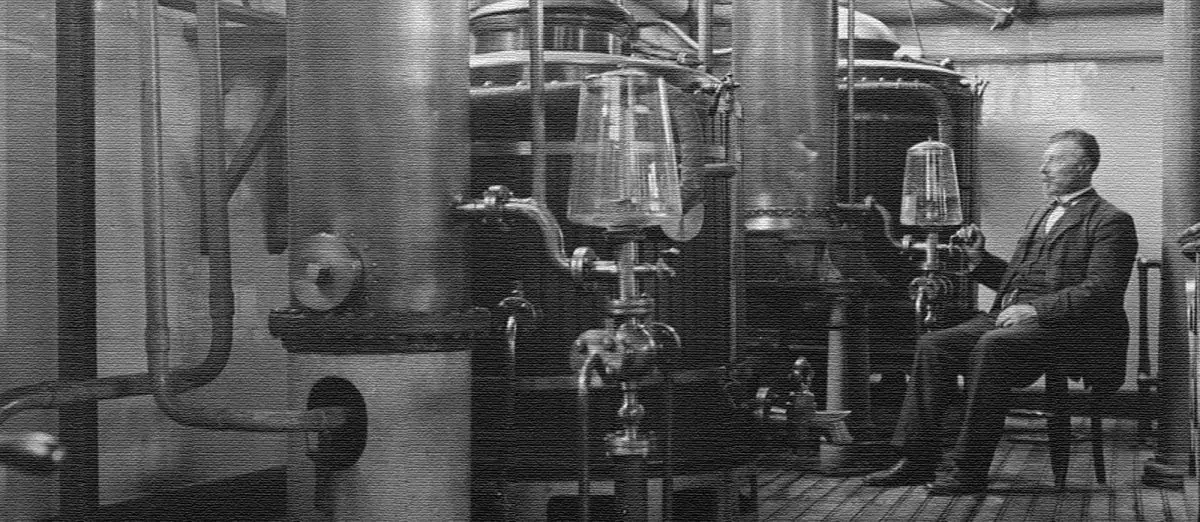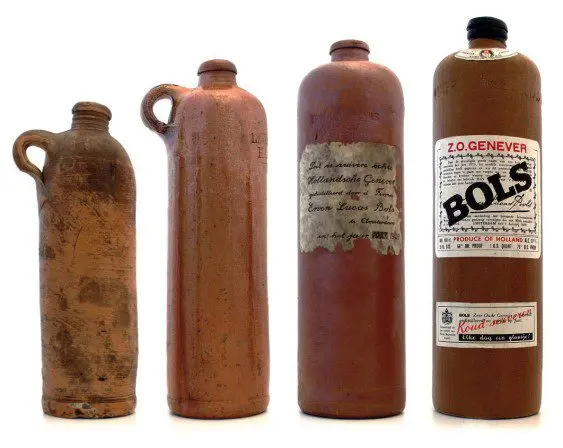Bols is one of the oldest alcohol producers in the world, the company was founded in Holland in 1575 and since then has been working on the revival of forgotten old recipes and the creation of new spirits.
History
1575 – The Bols family opened a small factory in Amsterdam for the production of liqueurs based on caraway, cardamom and orange. The enterprise was called “TLOOTSJE (shed)”. Initially, the plant was located outside the city walls, but the capital was built up, grew, and in 1612 the future Bols corporation was within the city. In the same 1612, the production acquired a new stone building, and in 1640 it was first mentioned in the newspapers.
1652 – Lucas Bols, grandson of Peter Bols, founder of the company, is born. Over time, Lucas led the production and began to export liqueurs under the Bols brand around the world.

In 1700, Lukas Bols became the principal shareholder of the Dutch East India Company and gained exclusive access to exotic spices and herbs. Thanks to this, he created more than 300 new recipes.
1664 – the production of the famous Dutch gin – jenever – began at the Bols enterprise.
XVIII century – the Bols family grew rich and prosperous, but less and less involved in the affairs of the company, transferring leadership to hired directors. In 1813, the last heir, Hermann Bols, died, and the production was put up for sale.
1815 – Industrialist Gabriel Theodorus van ‘t Wout bought the company, but decided not to change the name. The new management brought production out of the crisis: the assortment for 1820 included more than 300 liqueurs, bitters, elixirs and gins. Perhaps not all of them were released: it was a “work for the public” to mislead competitors.

1820 – The Bols company revised the recipe for jenever, changing the distillation technique and adding a complex herbal mixture to the composition.
1868 – The firm is taken over by the Moltzer family. Bols continued to develop new markets, in 1873 it became the official supplier of the Austrian royal court. Over time, other august customers began to contact Bols.
1883 – production of aged jenever began.

1920-40s – representative offices were opened in France, Poland, Switzerland, Canada, South Africa, Belgium, Argentina, Spain, USA.
1970-1980s – the company’s management came to the conclusion that genever is unlikely to become popular outside of Holland, you need to rely on something else. In 1977, Bols took over two brands of Italian aperitifs, Cynar and Biancosarti. Since 1983, the production of soft drinks began.
1989 Bols merged with Gedistilleerd en Wijngroep Nederland to form Bols Benelux BV, specializing in wine and liquor.
1993 Horizontal integration of Bols and the Dutch food manufacturer Royal Wessanen began. The new organization is named Bols Wessanen. In 1999, it became obvious that the partnership was failing, the company was reformed, as a result, Bols Royal Distilleries appeared.
2000 Merged with Remy Cointreau, benefiting both companies. Remy was able to diversify its product line, gained access to the Eastern European market and the managerial know-how of Bols. Bols, in turn, was able to join the Maxxium alliance, which allows them to distribute products around the world.
2005 – Bols was sold to the European investment fund ABN AMRO Capital, the Lucas Bols BV concern appeared
Bols produces not only alcohol, but also bar equipment, glasses, souvenirs, cocktail sets. The company’s brands include Bols, Galliano, Vaccari Sambuca, Pisang Ambon, Damrak Gin, Bokma, Hartevelt, Coebergh, etc.
Bols liqueurs are sold in more than 110 countries around the world. It is the main producer of jenever and a solid player in the alcoholic beverages market.
Company mission and values
The business model of Lucas Bols emphasizes the constant development of new products. The mission of the company is to create everything necessary for the best cocktails. The main target audience of Bols is not the end consumer, but bartenders, restaurateurs, owners of bars and cafes.
Lucas Bols pays equal attention to the development of both international (Bols, Galliano) and regional (Pisang Ambon, Bokma) brands. Four key strategic initiatives:
- Creation of brand capital (work to ensure that each brand of the corporation takes a strong place in its niche in the market).
- Development in the cocktail market (use of marketing techniques and strategic innovations to optimize the offer and product positioning).
- Accelerating the development of brands in the global market (development of growth strategies for brands in four geographical segments).
- Achieving operational excellence (combination of “internal” measures and actions delegated to outsourcing).
Types of liqueurs Bols
The company’s line includes 38 liqueurs with different flavors:
- Advocaat – egg liqueur;
- Amaretto – almond-based liqueur with apricot pits;
- Apricot;
- bitter orange;
- blueberry liqueur;
- Schnapps with toffee flavor;
- Blue Curaçao – a blue liqueur based on herbs, oranges and oranges;
- Cherry;
- Coconut;
- Coffee;
- Crème de Banane – banana liqueur with herbs, spices, vanilla and almonds;
- Crème de cacao dark – dark coffee liqueur;
- Crème de cacao white – light coffee liqueur;
- Crème de Cassis – blackcurrant liqueur;
- Dry Orange Curaçao – liqueur based on orange peel and bitter herbs;
- Banana liqueur;
- Green tea liqueur;
- Cherry vodka with Kirsch sweetener. A sweeter and “juicier” version is called Prinzenkirsch;
- Kiwi liqueur;
- Liqueur or lychee;
- Maraschino – a liqueur made from dessert cherries and herbs;
- mango;
- Melon liqueur;
- Parfait Amour, a liqueur based on rose petals, orange, vanilla;
- Passion fruit liqueur;
- Peach;
- Menthol liqueur (dark and light);
- Pomegranate;
- Crimson;
- Red orange liqueur;
- Liqueur based on gin and blackthorn;
- Strawberry;
- Triple sec Curaçao – orange liqueur;
- Triple Sec & Lime liqueur – Triple Sec with lime;
- Vanilla liqueur.

Brands managed by Lucas Bols BV
- Bols – one of the two main international brands of the concern (the second is Galliano), fruit liqueurs are produced under it, as well as vodka, gin:
- Galliano – represented by a variety of drinks, the most famous – herbal liqueur with anise and vanilla;
- Vaccari Sambuca – sambuca;
- Damrak Gin – modern variation of jenever;
- Passoa – passion fruit liqueur, an indispensable ingredient in some cocktails;
- Banana Ambon – banana liqueur with the addition of tropical fruits;
- Bootz – a Dutch brand that includes a wide range of liqueurs and spirits;
- Coebergh – a Dutch brand that produces fruit liqueurs, popular among women;
- Evita – Dutch coffee liqueur
- Goldstrike – Dutch schnapps with cinnamon flavor;
- Kontiki – gin-based liqueur with lemon and grapefruit;
- Black Chicken – “Lawyer”, egg liqueur.









